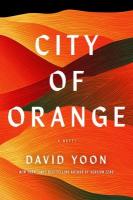
The end of the world.
"The end of the world." It's a phrase that gets used a lot. In a lot of different contexts. So just what does it mean? The dinosaurs experienced the end of the world--but the world itself didn't end, did it? For millennia people have worried the end of the world is imminent. Natural disasters, war, disease, famine, climate change, artificial intelligence, aliens, and so much more. For millennia people have told stories about what life will be like after world's end. What life will be like for those who survive the end of the world. Because in every scenario we imagine, someone or something survives to experience ongoing existence. There are always survivors.
So what does "the end of the world" mean, exactly? It doesn't mean the end of all life or, in most cases, destruction of the earth. Existence goes on. So is it really the end of "the world?" Or is it the end for some. Is it less an existential, collective end and more of an individual one? Because individuals--their small, personal worlds end in isolated ways everywhere all the time. Individual grief, trauma, financial ruin, natural disasters, war, disease, famine, and other forms of loss experienced by a person or a family or a community. Their personal, individual worlds have ended.
How many individual worlds have to end at the same time for it to count as the BIG "end of the world?" Because, as we know, there will be survivors, so it won't be everyone all at once.
Anyway. I'm supposed to be writing about a book, aren't I, instead of my extended, tangential thoughts prompted by it? I mean, the above is related to the book, but only slightly about the book.
City of Orange opens with a character regaining consciousness in an apocalyptic landscape. He has a head injury, is groggy, confused, and amnesiac. He can't remember who he is or how he's gotten where he is. He knows something awful has happened. The world has ended and he is a survivor. He knows he is scared and scarred. But he can't remember any details, doesn't know anything more than that.
So he stays hidden, afraid of the other remaining survivors of the world's collapse and the desperate lengths they must be willing to go to for continued survival, sure he has just unexpectedly survived an attack by some of them. Cautiously, ever so slowly, over the course of many days, he gradually explores his surroundings and tries to remember. But he doesn't want to remember, afraid the traumatic memories will completely overwhelm him. He ekes out a desperate, terrified existence, at times almost drifting into apathy by the idea of facing continued existence.
Burdened by an existential suspense about every mundane moment and the mounting dread of "something out there," the character begins to have encounters with others in his apocalyptic world and pieces of memory come back to him. A puzzle starts to emerge.
Eventually, of course, the puzzle pieces come together to form a picture. I won't spoil it by saying what, only that it is immersive and absorbing and absolutely affecting. Because the end of the world is horrific, particularly for those who live through it and have to learn to live with the trauma. But there are always survivors who can, with enough time and the right circumstances, create some new kind of life after the old one has ended.
